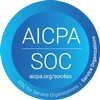Be the future of your industry, today.
We Can Do That
We’re experts at solving complex problems. Whether you are transforming your business, migrating technologies, modernizing, or problem solving, we can help. We deliver with quality, passion, and precision. Together, let’s make the complex simple.
Efficiency is Everything
We transform organizations through high-powered automation. The result? Top notch efficiency and increased profits. From ensuring streamlined compliance to creating exceptional customer journeys and more, we help you achieve best-in-class solutions.
Unlock the Autonomous Enterprise
As AI disrupts how we apply and leverage technologies, enterprises will struggle with applying AI and Low-Code technologies the right way and in the right places. We have been helping our clients identify and apply technology the right way for decades. Solving your business problem doesn’t have to be complex or expensive. Let us show you.
Best in Class Business Solutions
Our next-generation tools elevate performance. See improvements in loan processing, customer service, enrollment/onboarding, claims automation, dispute resolution and more. We also specialize in On Premise to Cloud/SaaS transitions and unique programs designed to help Pegasystems clients get the most from their investment. Whatever your industry or need - we can break through your barriers and deliver superior outcomes.
The Ultimate Competitive Advantage
Our world-class solutions impress your customers, reduce your operational costs, and streamline compliance. Increased agility means you’ll easily adapt to changing industry rules and support bigger business with a smaller workforce. We create smart solutions to difficult problems, so your staff is free to focus on high-value work.
Rock Star Results
We’ll bring the technical expertise and meaningful innovation; you can enjoy a smooth implementation, self-sufficiency after deployment, and best in class TCO. We’re honored to have the #1 Client Success Rate in the Pega Market – and we make sure we live up to it every single day.
Customer-First Approach
Our approach is simple–to make it simple. We are here to help you solve your problems, maximize your business and meet your goals. Whether you are trying to solve a business problem or transform your business to meet a customer need, we are here, making the complex simple and helping you deliver on the promise you have made to your shareholders and customers.
"I work with Rulesware because they deliver the hard messages that other implementation partners either don’t know I need to hear or are hesitant to bring.”
Executive Sponsor at Leading US Credit Union




